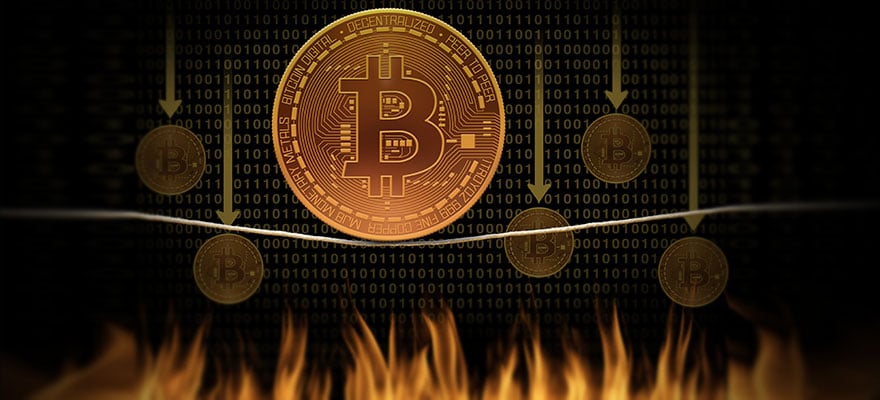The world of traditional finance is on the brink of an evolution. Long before the COVID-19 crisis took hold, global banks were scrambling to improve efficiencies and reduce costs. Most central banks have also studied the role of digital Blockchain -based currency in their economies. The cracks in traditional finance are beginning to widen and the system of multiple inefficient intermediaries will be forced to make serious changes. Decentralized Finance (DeFi) will have huge implications on the traditional financial system and the way we manage our wealth in the future.
What Is DeFi?
DeFi (decentralized finance, as opposed to centralized finance) encompasses anything that provides loans, borrowing, staking or some reward to the user for putting in capital to the system. Unlike traditional banks, it removes all the layers of intermediaries and middlemen that would normally be involved through the use of smart contracts. This also removes all the high costs associated with this legacy system - and these benefits are transferred to the end-user.
The DeFi space remains heavily reliant on the Ethereum blockchain (which has famously struggled to scale to onboard mass users). However, once Ethereum transitions to ETH 2.0 using the Proof of Stake consensus mechanism, the number of users it can onboard will be potentially without limitation. The next wave of crypto adoption will really begin in earnest. Moreover, other serious contenders are further building out the space, such as Compound, and Maker DAO, propelling DeFi to more and more users.
In the current DeFi landscape, users can earn anywhere between a 7-10% interest rate on their crypto. At long last, just as the generations of wealthy people before them, they can make their money work for them and not the other way around. This is an extremely attractive option, particularly in the current environment of negative interest rates and unchecked QE. Keeping your euros, dollars, or yen in a bank account will actually lose you money over time.
DeFi may still be young and further growth is needed for its massive adoption. The industry hit a milestone this February surpassing $1bn of locked-up value, although compared to traditional finance that's barely a drop in the bucket. Yet, it's already beginning to rebuild and replicate the entire world’s financial system using decentralized applications that fit together like blocks of Lego. There are many benefits of DeFi for users that traditional banks are either going to have to adapt to, adopt, or be left in the dust.
The Stage Is Being Set for Decentralized Finance
With the coronavirus health crisis fast becoming an economic one of untold epic proportions, the question of money supply and creation is starting to gain traction. Millions of people around the world furloughed from their jobs or watching factories and offices close down are starting to ask the hard questions.
How can governments suddenly print trillions of dollars out of thin air when they have to pay taxes? Why have they endured years of austerity and cutbacks leaving their healthcare systems vulnerable? Does money really have any value to it at all anymore?
Those who are able to think beyond receiving their next benefit check or government aid may start investigating a little deeper. Why, for example, is this money going to bolster the stock market and the top 1% of society rather than the millions of individuals and businesses that really need it? People will soon begin to realize that inflating the money supply means they're actually being taxed as their savings are diluted.
And with traditional finance, those in need of credit right now are also those who are most likely to be denied it. The banks may receive bailouts but that money won't go toward giving people credit. Worse still, they may close down branches or place a limit on the amount that customers can withdraw.
All this rising discontent with banks coupled with new information and growing offers from the crypto space are providing people with an alternative at last. They no longer have to participate in a system that doesn't work for them. The cycle can be broken by removing central actors. And it comes in the shape of decentralized finance with C2C lending, high-interest accounts, and staking for returns.
Allowing People to Earn Interest on Their Savings
Some of DeFi's products may still be off-putting to a non-crypto user, as they require taking more time to learn about than using a simple Visa card. But with the glaring advantages and continued improvement of products adoption will steadily grow.
Buying stablecoins is becoming simpler and makes infinitely more sense than leaving your fiat currency in a bank. And for those who are already crypto-literate, they can take out instant fiat cash loans using their crypto as collateral. It doesn't matter what their credit score may be, they can get cash when they need it. There's no one preventing them from taking part in the system.
This is especially compelling in developing countries, or those with hyperinflation, that may not have any available centralized solutions for getting credit. Instead of seeing their savings lose value or get wiped out entirely, they can actually earn money on them or convert and transfer them where they're needed.
And the case is equally as attractive when it comes to developed countries - between placing your money into equities right now, leaving it in a bank, or earning a high, stable return, the choice becomes obvious. The current crisis may be causing havoc across the world but it's also serving to accelerate an already existing trend. Crypto is lowering the barrier to a retail level where people can finally achieve a real level of control over their wealth.
Bringing Real-World Assets onto the Blockchain
The main focus of DeFi up until now has been onboarding retail customers. However, mirroring the situation in the entire cryptocurrency industry, adding institutional players is needed to take things to the next level. Many projects and participants in the DeFi ecosystem are currently focused on building out the infrastructure so that the institutions will come.
Of course, institutions have different needs from retail customers. Not all transactions can be public and viewable by all on a public blockchain like Ethereum. There's a need for permissioned chains, and permissioned enterprise-grade blockchains that leverage the ecosystem and can interoperate with ease.
This also means there's a continued need to ensure interoperability between blockchains and increased regulatory clarity that allows institutions to comply. Institutional buy-in would turn DeFi into a trillion-dollar industry, rather than a billion-dollar one. This is where the implications become truly enormous.
This would allow for bringing real-world assets onto the blockchain that will be critical for future growth. So, let's imagine the transfer of trillions of US dollars, euros, Swiss francs, silver, gold, onto the blockchain all being moved at the cost of a tenth of a penny with no Liquidity limits and no massive intermediary fees.
Traditional finance may be feeling threatened right now, but it's also impossible to ignore such compelling technology, cost-savings and improvements to the legacy system. All of these benefits make DeFi an inevitable next step.
By Jay Hao, CEO of OKEx















